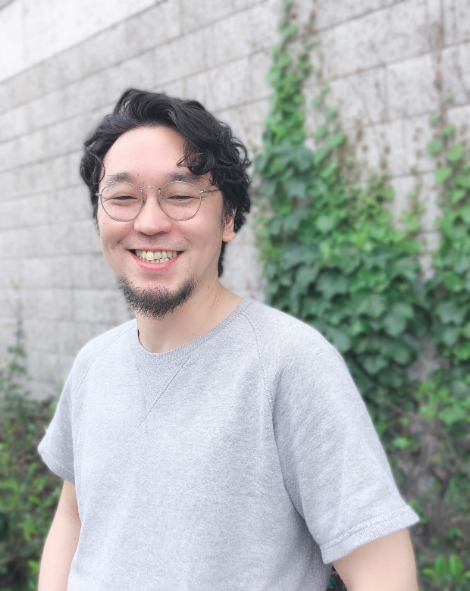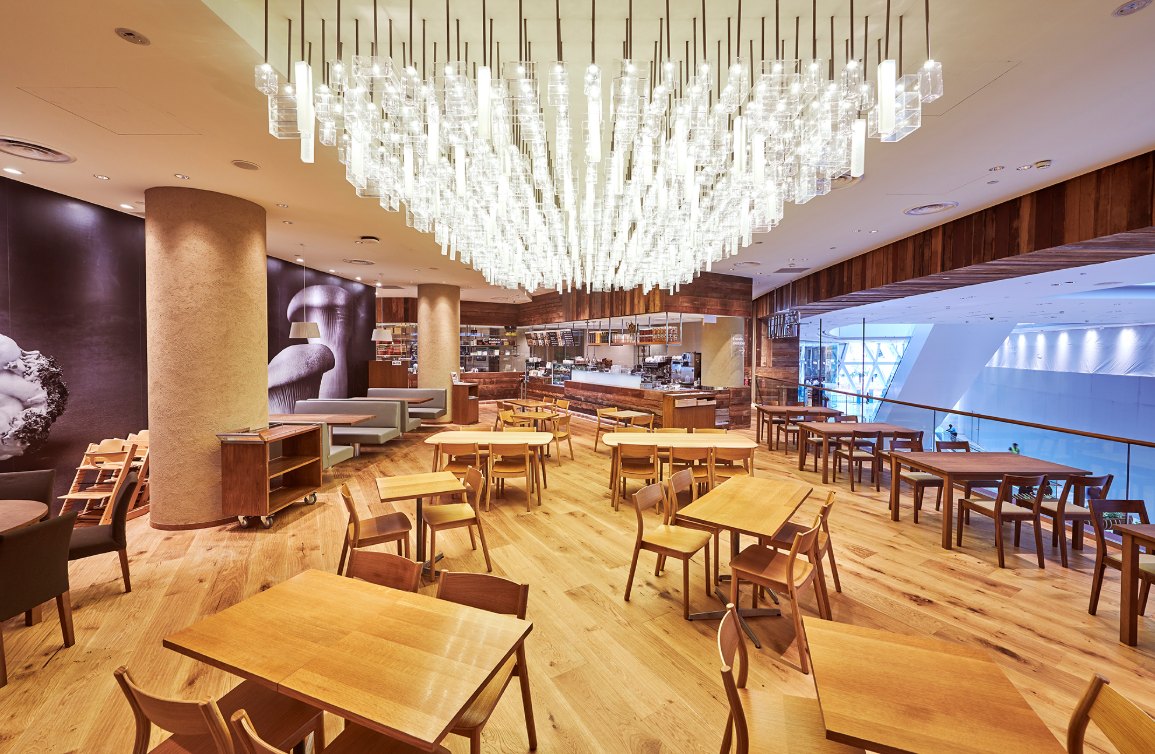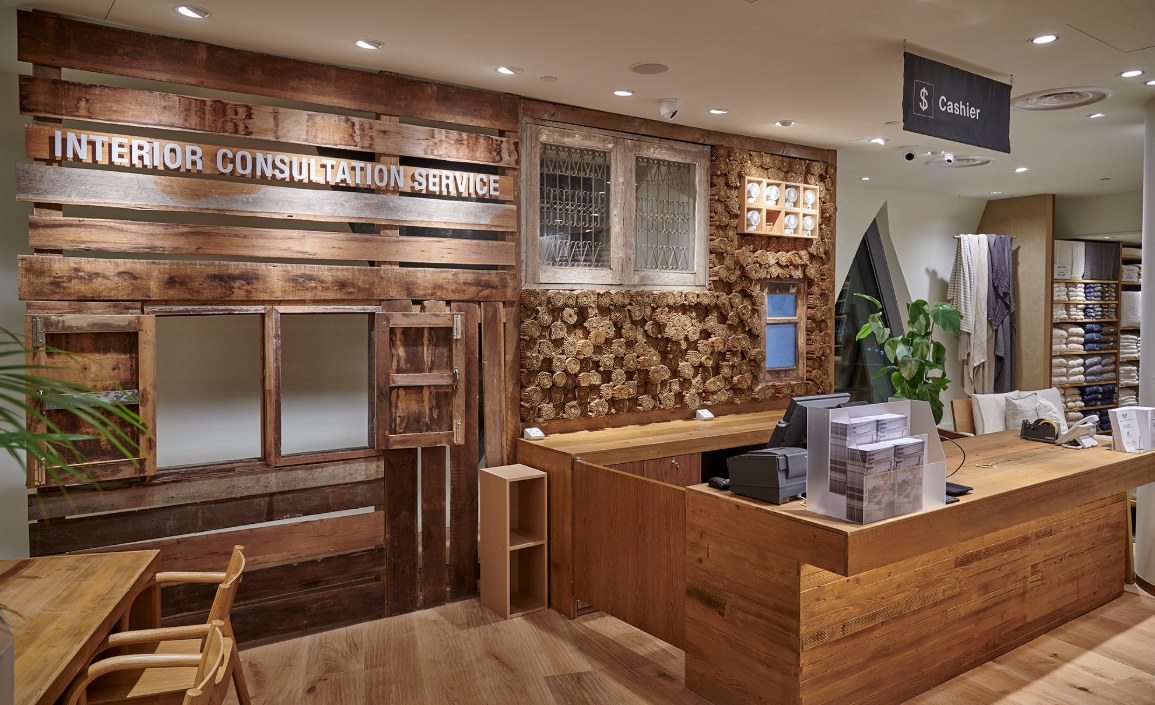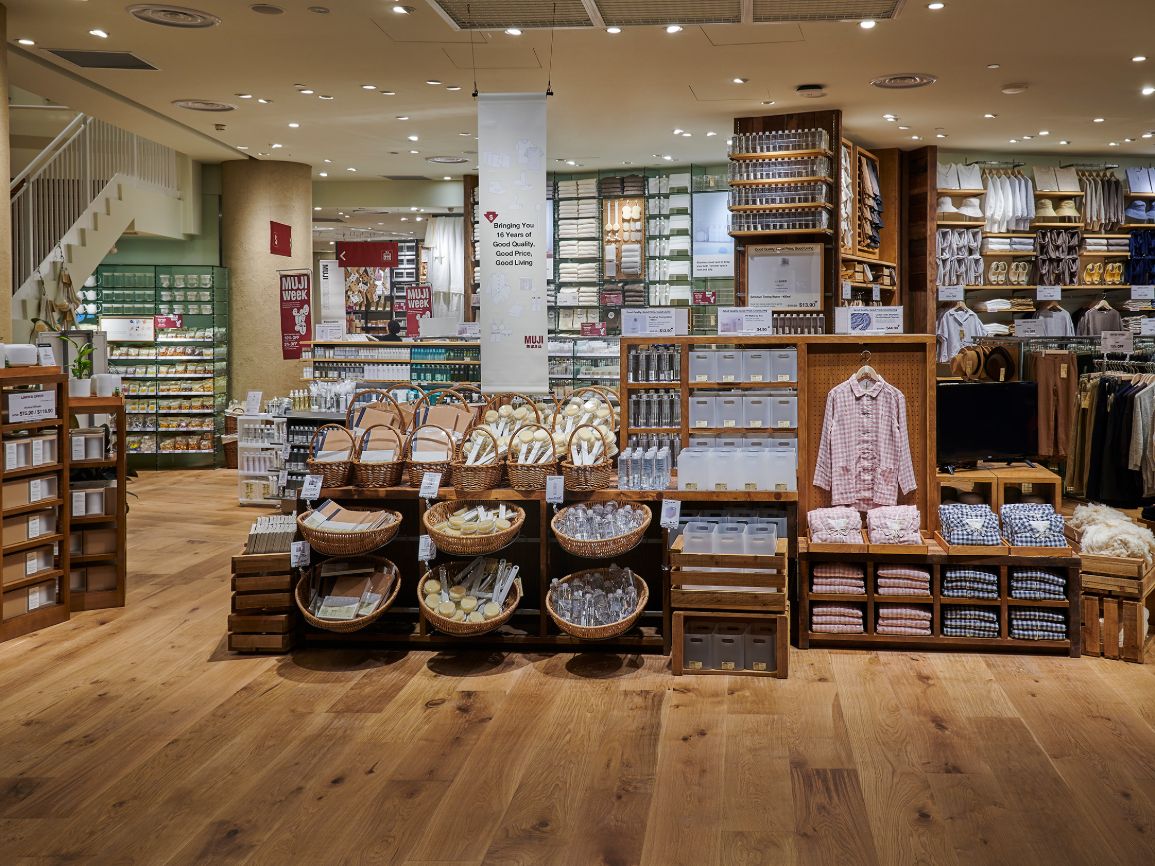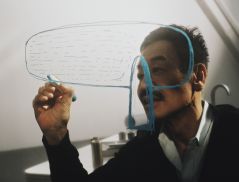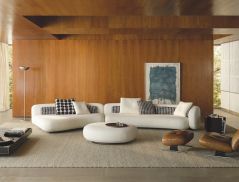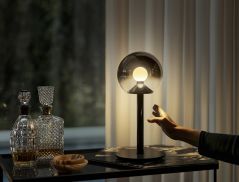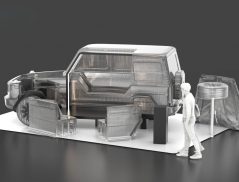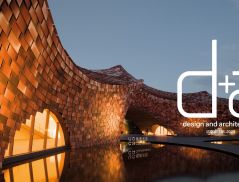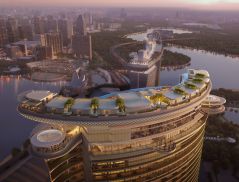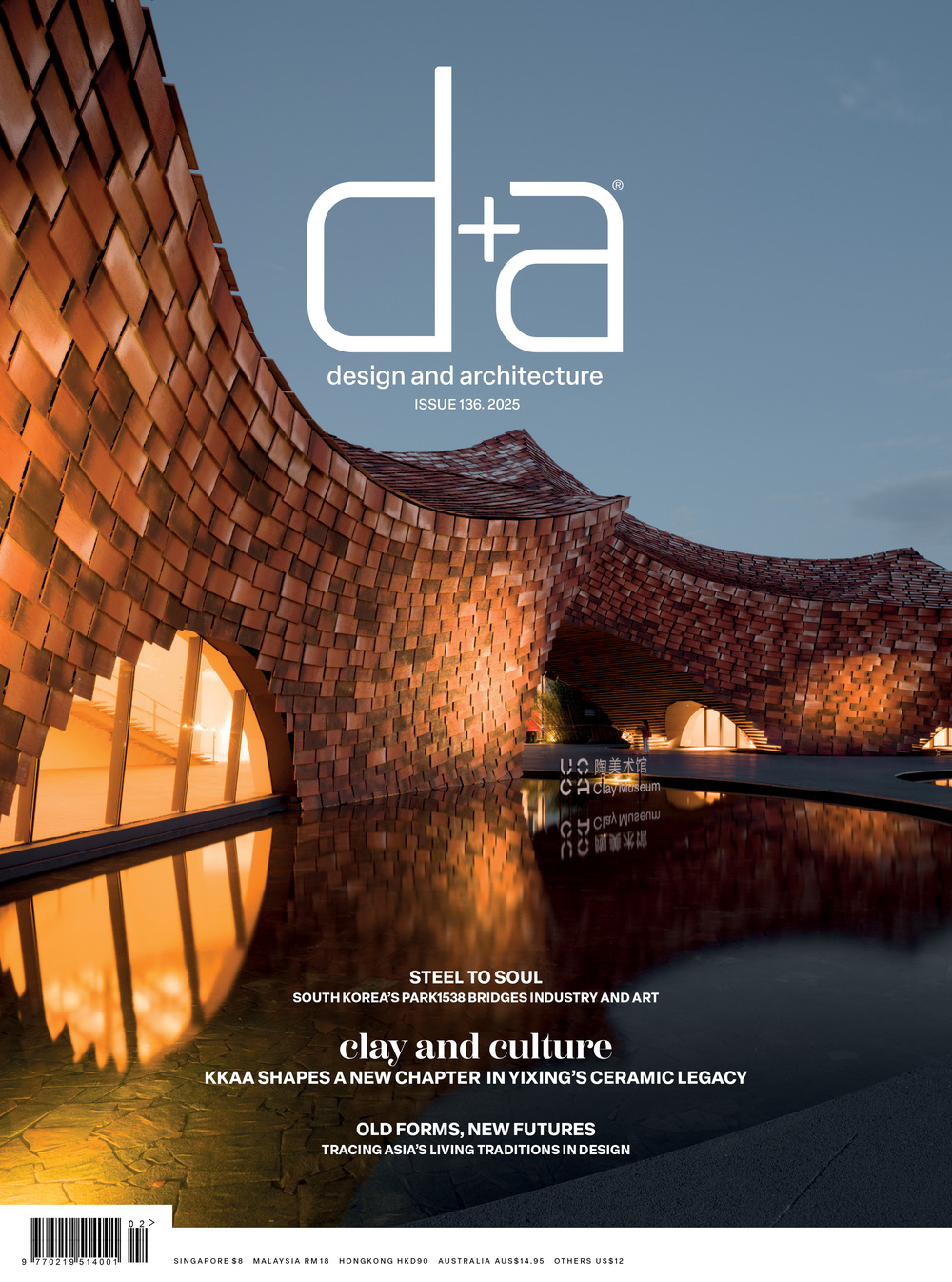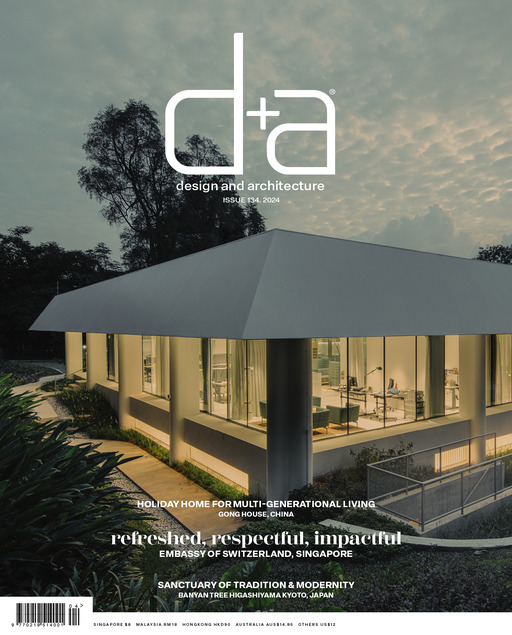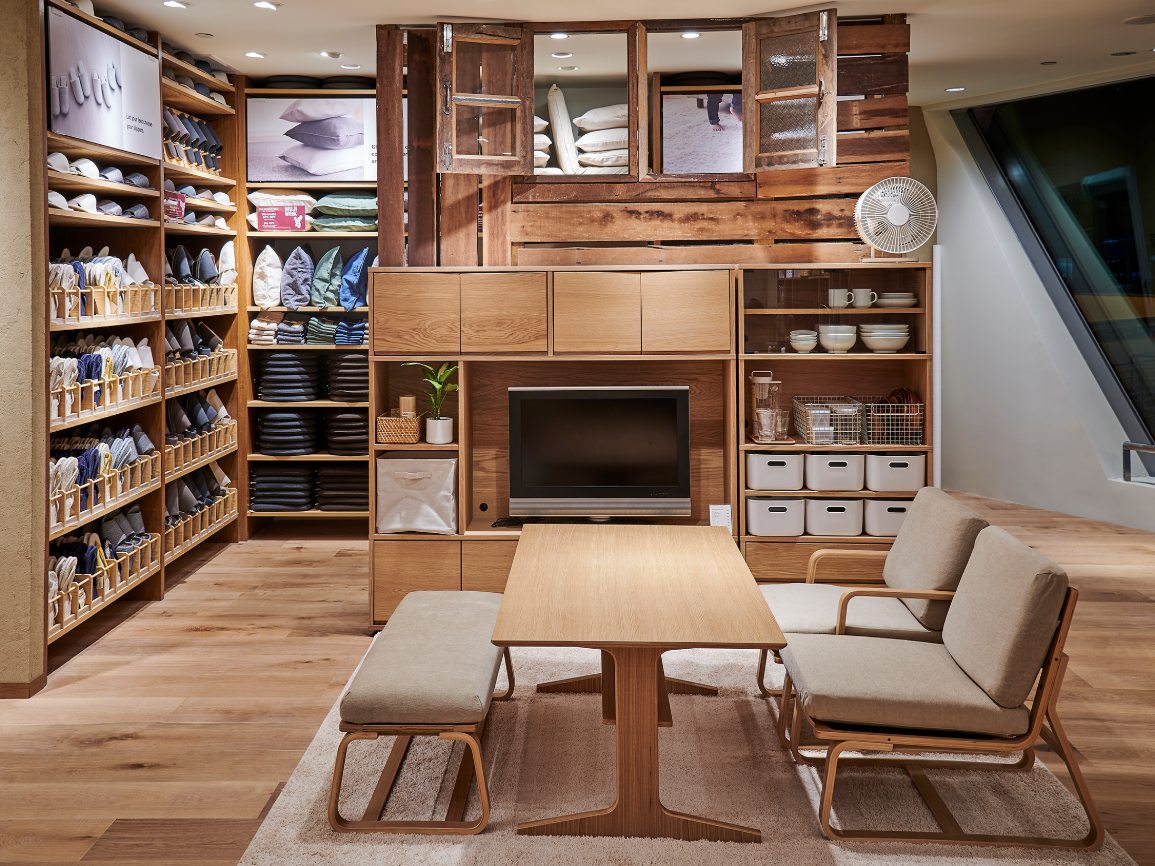
The opening of Jewel Changi Airport has heralded a slew of interesting new retail concepts within the mixed-use project. One example is MUJI. The well-loved Japanese brand occupies a duplex unit – the first of its kind in Singapore.
Designed by renowned Japanese firm Super Potato, it embodies the concept of fusing local culture with what MUJI stands for. The spacious interiors are crafted using materials reminiscent of wood, steel and earth.
“We were advised by the client, upon starting the project, that they had three concepts that they wished to convey and express on this particular MUI project: never-changing MUJI value of a store environment that optimises the beauty and characteristics of materials for a comfortable life, integration with local culture and communication through food,” says Shinya Maeda, Chief Designer of Super Potato.


Here, Maeda shares some of his thoughts on how the store was designed.
Can you elaborate on the design concept?
This new commercial complex built adjacent to the airport is visited by different customers such as transit passengers from the airport, as well as locals. The space was created to establish a strong impression on visitors from all over the world, make it easy to find items, and have a relaxing experience at the store.
Materials such as “wood, steel and earth” with unique feels and textures are minimally yet boldly used in the walls, columns and fixtures. We have arranged each material so the tones, texture, warmth and ageing of each material matches the merchandise.
In answer to the idea of fusing local culture and MUJI, we did a study of materials that could support it. Thanks to local contractors, we found a lot of recycled lumber from old houses that are no longer in use, contrasting against the modernisation of architecture in Southeast Asia. The idea of introducing antique lumber was plotted into the “wood” category of the three important elements of “wood, steel and earth”.
Recycled lumber with traces of handicraft has abundant local flavor and conveys the good atmosphere of Southeast Asia. With that beautiful mix with MUJI products, we encourage customers to experience the unique MUJI identity in the store.
What inspired it?
Two things: the location of the store/the environmental features and the old houses in Southeast Asia.


What are the design highlights of this outlet?
Firstly, as a duplex store in Jewel Changi Airport, this store emits a feeling of grandeur. The large 88-seat Café&Meal MUJI space has a good ambience with balcony seating that offers views of the Sky Train passing through. We also encourage diners to admire the chandelier in the café, where the shade is made with transparent MUJI Products such as its jewellery boxes. We hope they feel and experience the characteristics of products better and clearer by introducing light.
How did Jewel inspire the design, if at all?
Jewel is located in the airport facility of a country that we are close with. The unique location inspires the design to think about how guests from all over the world use the airport, and how MUJI design would connect with each other, and what kind of good communication would emerge.
Feature such as the wide facade of approximately 20m and the prominent presentation of the store, which can be seen by guests coming up on the escalator, are something distinctive to the architecture of Jewel at the store location.
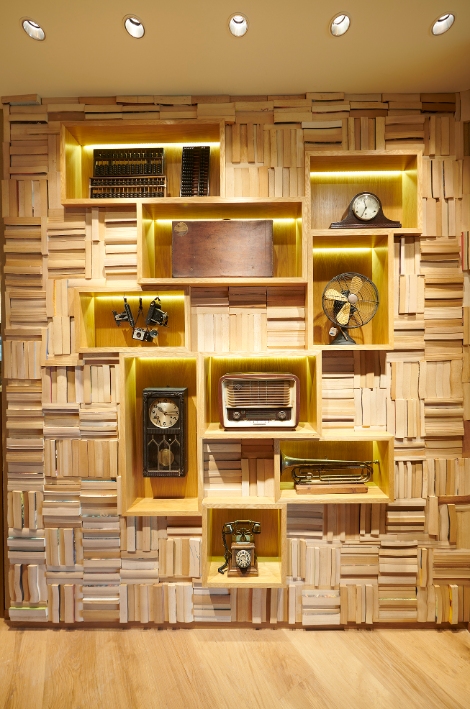

The interior features a mixture of contemporary and local traditional elements. Please explain what these are.
The local traditional elements refer to old-fashioned household items such as vintage window grills, antique rotary phones, steel table fans, film cameras and more. These elements add to the value of timeless designs, and intrigue shoppers as they enter.


 Share
Share
